Amino acids: in which foods and supplements are they found?
The basic building blocks of proteins, amino acids are found in foods as well as in dietary supplements. Find out how to ensure you’re getting enough.
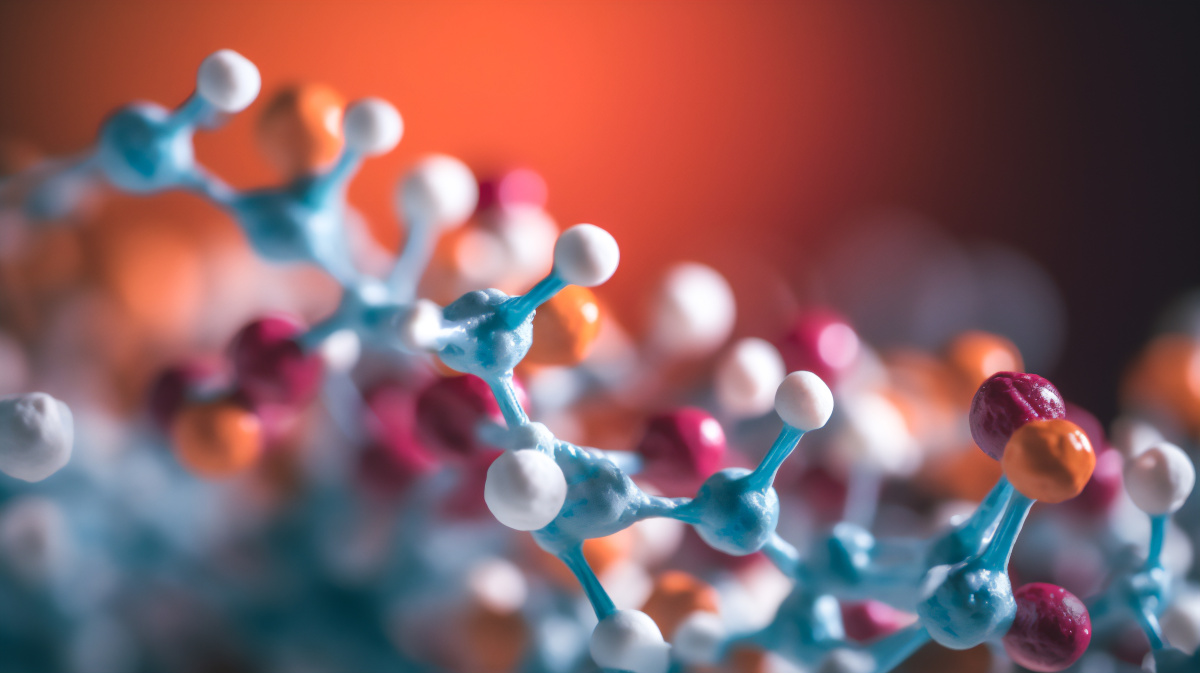
What role do amino acids play in the body?
Chemically speaking, an amino acid is a complex molecule which has a carboxyl group (formula COOH) and a functional amine group (formula NH2 or NH). Almost 500 have been identified in the living world, classified into different categories depending on their configuration.
Among them are the proteinogenic amino acids which play a crucial role as they constitute the building blocks of proteins. Common to all living beings, there are precisely 20 of them in the human body and they combine together to form peptide bonds (1).
Involved in the synthesis of structural, contractile and transport proteins, as well as immunoglobulins, enzymes and hormones (such as insulin), they play an important role in the body’s integrity and growth: maintaining homeostasis, supporting muscle development and immunity… (2)
They are distinct in having (with one exception) the same fundamental structure of H2N–HCR–COOH. In addition to the usual amino and carboxyl groups, they have a carbon atom, a hydrogen atom and a variable R chain. It’s the latter which distinguishes one amino acid from another and determines its chemical and functional properties (3).
Of these proteinogenic amino acids, nine are considered ‘essential’. In other words, our bodies are unable to synthesise them and we need to obtain them from our daily diet (4).
It should be noted that not all amino acids produced by the body are not necessarily integrated into proteins. They do, however, participate in equally crucial physiological processes. This is the case with citrulline, present in abundance in the Cucurbitaceae or gourd family, which is a key intermediate in the urea cycle (5).
The 20 proteinogenic amino acids
The 20 amino acids present in human proteins are (6):
- alanine;
- arginine;
- asparagine;
- aspartate;
- cysteine;
- glutamate;
- glutamine;
- glycine;
- histidine;
- isoleucine;
- leucine;
- lysine;
- methionine;
- phenylalanine;
- proline;
- serine;
- threonine;
- tryptophan;
- tyrosine;
- valine.
The 9 essential amino acids and their dietary sources
Leucine
Leucine acts as a trigger in building muscle at a cellular level and is involved in energy production (7). It is found in meat, fish, dairy products and soya. Many athletes benefit from it by taking branched-chain amino acid supplements (BCAA) to support their performance (8).
Isoleucine
Another of the three branched-chain amino acids in BCAA, isoleucine is found in haemoglobin and modulates how the body uses blood sugars (9). In addition to animal-source products, it is in nuts, spirulina, sunflower seeds and chickpeas.
Phenylalanine
A tyrosine precursor, phenylalanine is involved in the synthesis of catecholamines (dopamine, adrenaline, noradrenaline) (10). Good sources include meat, fish, soya, oleaginous fruits and potatoes, and to a lesser degree, whole grains.
Tryptophan
Tryptophan is used to make serotonin (‘happiness hormone’ and by extension, melatonin (‘sleep hormone’) (11). Deficiency can therefore cause sleep problems or mood disorders. Wholegrain rice, dairy products, nuts and chocolate are all good sources, which are absorbed even more effectively in the presence of sugars.
If you’re feeling irritable or down, or are not getting enough restful sleep, it might be wise to boost your dietary intake by taking a tryptophan supplement (such as the powerful L-Tryptophan) (12).
Threonine
Contributing to the formation of connective tissue (elastin and collagen), threonine also plays a key role in digestion (13). Soya beans, veal, turkey and cod all contain significant amounts.
Lysine
In competition with arginine, lysine is involved in many biological bone and connective tissue functions, in carbohydrate metabolism and in the production of antibodies (14). Abundant in the animal kingdom, it is also found at appreciable levels in pulses, corn and fermented foods.
While it’s rare to be lacking in lysine, prolonged intense stress or malnutrition can cause deficiency (taking a lysine supplement, such as L-Lysine, can help boost your intake) (15).
Valine
The third of the amino acids in BCAA, valine supports good physical and muscle recovery after exercise (16). It’s primarily found in cheese, pumpkin seeds, chia seeds and sunflower seeds.
Methionine
Differing from the other amino acids in its sulphur-containing structure, methionine underpins liver function and strong defence mechanisms (17). It requires a simultaneous intake of vitamin B12 to be fully absorbed. Nuts, beef, parmesan, fish and whole grains are all good sources.
Histidine
Considered essential in children and pregnant women, histidine is an amino acid which can be partially produced by adults in general and for them it is thus regarded as semi-essential. It acts as a precursor of histamine (released in allergic reactions), and is also found in pancreatic enzymes and in haemoglobin where it neutralises the blood pH (18). The best food sources are parmesan, chicken, bacon, tofu and steak.
In which foods are the 9 essential amino acids found?
Generally speaking, amino acids are found in animal protein (meat, fish, eggs, dairy products) and plant protein (grains, legumes, nuts…) (19).
However, it’s animal protein which contains the 9 essential amino acids in sufficient amounts (giving it a higher biological value). This is rarely the case for plants except for soya and its derivatives, quinoa, and buckwheat (20-21).
Grains are generally deficient in lysine and legumes in methionine (22-23). These amino acid deficits can be problematic as they limit protein synthesis.
Vegetarians and vegans are thus advised to ingest both at the same meal (rice with kidney beans, semolina with chickpeas… ) (24). Combining in this way is perfectly achievable for adults over a day.
Semi-essential amino acids
As we’ve seen with histidine, certain amino acids are considered to be semi-essential: they can theoretically be produced by the body but only under certain conditions. Endogenous production may prove insufficient, especially in early childhood or in the case of underlying disease (kidney failure, for example).
Arginine, cysteine, glutamine, glycine, proline and tyrosine all fall into this category and should therefore be provided by the diet when metabolism requires it (25-26). Supplementing with certain semi-essential amino acids can provide a useful boost in some cases: click on the name of a particular amino acid in those listed above to find the corresponding supplement (27-28).
SUPERSMART ADVICE
References
- Hou Y, Wu G. Nutritionally Essential Amino Acids. Adv Nutr. 2018 Nov 1;9(6):849-851. doi: 10.1093/advances/nmy054. PMID: 30239556; PMCID: PMC6247364.
- National Research Council (US) Subcommittee on the Tenth Edition of the Recommended Dietary Allowances. Recommended Dietary Allowances: 10th Edition. Washington (DC): National Academies Press (US); 1989. 6, Protein and Amino Acids. Available from: https://www.ncbi.nlm.nih.gov/books/NBK234922/?report=classic
- Sanvictores T, Farci F. Biochemistry, Primary Protein Structure. [Updated 2022 Oct 31]. In: StatPearls [Internet]. Treasure Island (FL): StatPearls Publishing; 2023 Jan-. Available from: https://www.ncbi.nlm.nih.gov/books/NBK564343/
- Lopez MJ, Mohiuddin SS. Biochemistry, Essential Amino Acids. [Updated 2023 Mar 13]. In: StatPearls [Internet]. Treasure Island (FL): StatPearls Publishing; 2023 Jan-. Available from: https://www.ncbi.nlm.nih.gov/books/NBK557845/
- Allerton TD, Proctor DN, Stephens JM, Dugas TR, Spielmann G, Irving BA. l-Citrulline Supplementation: Impact on Cardiometabolic Health. 2018 Jul 19;10(7):921. doi: 10.3390/nu10070921. PMID: 30029482; PMCID: PMC6073798.
- Lopez MJ, Mohiuddin SS. Biochemistry, Essential Amino Acids. [Updated 2023 Mar 13]. In: StatPearls [Internet]. Treasure Island (FL): StatPearls Publishing; 2023 Jan-. Available from: https://www.ncbi.nlm.nih.gov/books/NBK557845/
- Pedroso JA, Zampieri TT, Donato J Jr. Reviewing the Effects of L-Leucine Supplementation in the Regulation of Food Intake, Energy Balance, and Glucose Homeostasis. 2015 May 22;7(5):3914-37. doi: 10.3390/nu7053914. PMID: 26007339; PMCID: PMC4446786.
- Khemtong C, Kuo CH, Chen CY, Jaime SJ, Condello G. Does Branched-Chain Amino Acids (BCAAs) Supplementation Attenuate Muscle Damage Markers and Soreness after Resistance Exercise in Trained Males? A Meta-Analysis of Randomized Controlled Trials. Nutrients. 2021 May 31;13(6):1880. doi: 10.3390/nu13061880. PMID: 34072718; PMCID: PMC8230327.
- National Center for Biotechnology Information (2023). PubChem Compound Summary for CID 6306, l-Isoleucine. Retrieved May 23, 2023 from https://pubchem.ncbi.nlm.nih.gov/compound/l-Isoleucine.
- Lou HC. Dopamine precursors and brain function in phenylalanine hydroxylase deficiency. Acta Paediatr Suppl. 1994 Dec;407:86-8. doi: 10.1111/j.1651-2227.1994.tb13461.x. PMID: 7766968.
- Jenkins TA, Nguyen JC, Polglaze KE, Bertrand PP. Influence of Tryptophan and Serotonin on Mood and Cognition with a Possible Role of the Gut-Brain Axis. 2016 Jan 20;8(1):56. doi: 10.3390/nu8010056. PMID: 26805875; PMCID: PMC4728667.
- Richard DM, Dawes MA, Mathias CW, Acheson A, Hill-Kapturczak N, Dougherty DM. L-Tryptophan: Basic Metabolic Functions, Behavioral Research and Therapeutic Indications. Int J Tryptophan Res. 2009 Mar 23;2:45-60. doi: 10.4137/ijtr.s2129. PMID: 20651948; PMCID: PMC2908021.
- Tang Q, Tan P, Ma N, Ma X. Physiological Functions of Threonine in Animals: Beyond Nutrition Metabolism. 2021 Jul 28;13(8):2592. doi: 10.3390/nu13082592. PMID: 34444752; PMCID: PMC8399342.
- Hu Y, Feng L, Jiang W, Wu P, Liu Y, Kuang S, Tang L, Zhou X. Lysine deficiency impaired growth performance and immune response and aggravated inflammatory response of the skin, spleen and head kidney in grown-up grass carp (Ctenopharyngodon idella). Anim Nutr. 2021 Jun;7(2):556-568. doi: 10.1016/j.aninu.2020.07.009. Epub 2021 Mar 7. PMID: 34258445; PMCID: PMC8245797.
- Vuvor F, Mohammed H, Ndanu T, Harrison O. Effect of lysine supplementation on hypertensive men and women in selected peri-urban community in Ghana. BMC Nutr. 2017 Jul 27;3:67. doi: 10.1186/s40795-017-0187-6. PMID: 32153847; PMCID: PMC7050943.
- National Center for Biotechnology Information (2023). PubChem Compound Summary for CID 6287, Valine. Retrieved May 23, 2023 from https://pubchem.ncbi.nlm.nih.gov/compound/Valine.
- Martínez Y, Li X, Liu G, Bin P, Yan W, Más D, Valdivié M, Hu CA, Ren W, Yin Y. The role of methionine on metabolism, oxidative stress, and diseases. Amino Acids. 2017 Dec;49(12):2091-2098. doi: 10.1007/s00726-017-2494-2. Epub 2017 Sep 19. PMID: 28929442.
- Kessler AT, Raja A. Biochemistry, Histidine. [Updated 2022 Jul 18]. In: StatPearls [Internet]. Treasure Island (FL): StatPearls Publishing; 2023 Jan-. Available from: https://www.ncbi.nlm.nih.gov/books/NBK538201/
- Górska-Warsewicz H, Laskowski W, Kulykovets O, Kudlińska-Chylak A, Czeczotko M, Rejman K. Food Products as Sources of Protein and Amino Acids-The Case of Poland. 2018 Dec 13;10(12):1977. doi: 10.3390/nu10121977. PMID: 30551657; PMCID: PMC6315330.
- Craine EB, Murphy KM. Seed Composition and Amino Acid Profiles for Quinoa Grown in Washington State. Front Nutr. 2020 Aug 12;7:126. doi: 10.3389/fnut.2020.00126. Erratum in: Front Nutr. 2020 Nov 09;7:605674. PMID: 32903386; PMCID: PMC7434868.
- Michelfelder AJ. Soy: a complete source of protein. Am Fam Physician. 2009 Jan 1;79(1):43-7. PMID: 19145965.
- Bandyopadhyay S, Kuriyan R, Shivakumar N, Ghosh S, Ananthan R, Devi S, Kurpad AV. Metabolic Availability of Lysine in Milk and a Vegetarian Cereal-Legume Meal Determined by the Indicator Amino Acid Oxidation Method in Indian Men. J Nutr. 2020 Oct 12;150(10):2748-2754. doi: 10.1093/jn/nxaa235. PMID: 32840572.
- Müntz K, Christov V, Saalbach G, Saalbach I, Waddell D, Pickardt T, Schieder O, Wüstenhagen T. Genetic engineering for high methionine grain legumes. Nahrung. 1998 Aug;42(3-4):125-7. doi: 10.1002/(sici)1521-3803(199808)42:03/04<125::aid-food125>3.3.co;2-1. PMID: 9739551.
- Bouchard J, Malalgoda M, Storsley J, Malunga L, Netticadan T, Thandapilly SJ. Health Benefits of Cereal Grain- and Pulse-Derived Proteins. Molecules. 2022 Jun 10;27(12):3746. doi: 10.3390/molecules27123746. PMID: 35744874; PMCID: PMC9229611.
- Appleton J. Arginine: Clinical potential of a semi-essential amino acid. Altern Med Rev. 2002 Dec;7(6):512-22. PMID: 12495375.
- Aliu E, Kanungo S, Arnold GL. Amino acid disorders. Ann Transl Med. 2018 Dec;6(24):471. doi: 10.21037/atm.2018.12.12. PMID: 30740402; PMCID: PMC6331359.
- Mokhtari V, Afsharian P, Shahhoseini M, Kalantar SM, Moini A. A Review on Various Uses of N-Acetyl Cysteine. Cell J. 2017 Apr-Jun;19(1):11-17. doi: 10.22074/cellj.2016.4872. Epub 2016 Dec 21. PMID: 28367412; PMCID: PMC5241507.
- Hoffer LJ, Sher K, Saboohi F, Bernier P, MacNamara EM, Rinzler D. N-acetyl-L-tyrosine as a tyrosine source in adult parenteral nutrition. JPEN J Parenter Enteral Nutr. 2003 Nov-Dec;27(6):419-22. doi: 10.1177/0148607103027006419. PMID: 14621123.
Keywords
3 Days
very good expereince
very good expereince
Jelena Đaković
3 Days
Very good products.
Very good products.
Agnes BENDSAK
5 Days
Just OK
Just OK, ordering from company for many years and being safisfied
Lynn Mae
6 Days
Recomendo
Produtos encomendados são recebidos atempadamente e de acordo com o anunciado! Muito satisfeita!
Carla Sofia
6 Days
Everything is great!
Everything is great!
Jonas
11 Days
The delivery was fast and the product…
The delivery was fast and the product is great
SOMMARIVA Gianni
12 Days
Great service and lots of information
Great service and lots of information
Gabi
15 Days
Service Satisfaction
I’m satisfied with the service; it fulfilled what it set out to do.
Anfhony Abreu
18 Days
Original product and fast delivery
Original product and fast delivery. I haven't started it yet, but will do soon.
Vincenza Catania
21 Days
Good quality
Good quality. Good service.
Leonel Guzman
23 Days
Top!!!!!!!!
Top!!!!!!!!
Michael
25 Days
Excellent!
Products are great and delivered fast!
PARDINI Debora
26 Days
From order to receive the product
From order to receive the product, the process is smooth & fast. It’s good to customers.
WONG Mei Ling
27 Days
Fast delivery
very quick delivery to italy. product is good.
Customer
28 Days
Prompt delivry !!👍
Prompt delivry !!👍
SWEET Christine
of experience
your money back
##montant## purchase


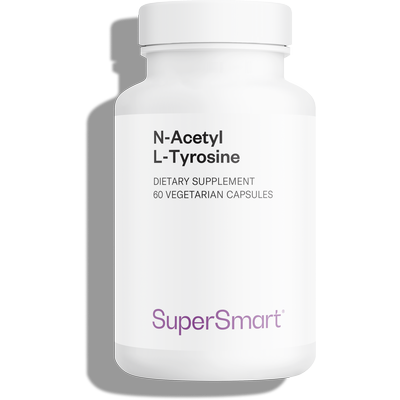
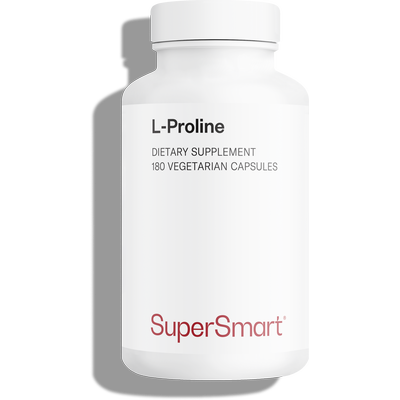
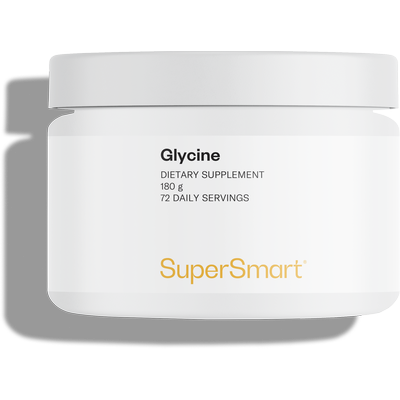
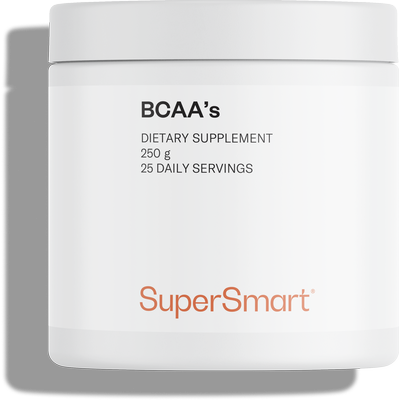
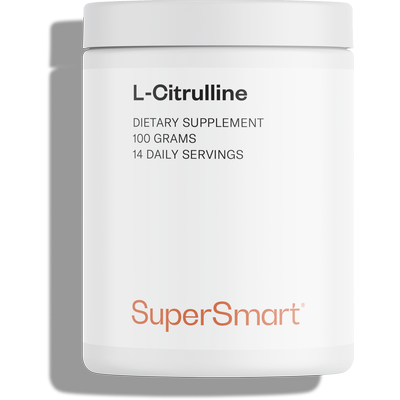
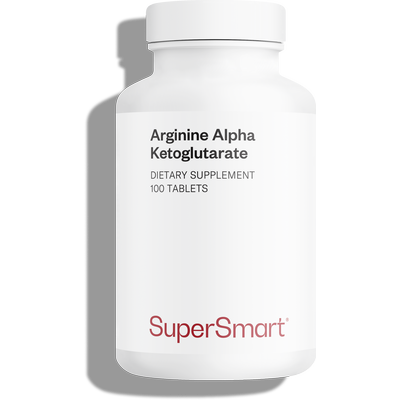


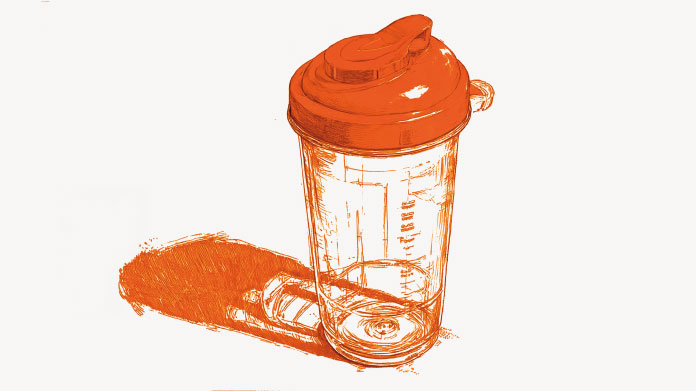
Muscle S
17/12/2025
This was a very detailed and well-structured guide on amino acids, especially the breakdown between essential, semi-essential, and their natural food sources. The way you connected specific amino acids to real-life benefits like muscle support, mood, immunity, and digestion makes the science easy to understand and genuinely useful for readers who care about their nutrition. It also helps people see why choosing the Best Amino Acid Supplement in India matters when diet alone may not be enough to meet their needs. For anyone looking to explore high-quality amino acid options, you can learn more here: https://www.musclescoop.shop/product-tag/amino-acids/
SuperSmart.com
17/12/2025
Hello,
And thank you so much for your positive feedback.
We're delighted that this article helped you better understand the role of amino acids and their practical, everyday benefits.
Our goal is precisely to make the scientific basics accessible so that everyone can make informed nutritional choices.
Please don't hesitate to contact us directly if you have any questions, either by email or phone.
We're here to help. 🤗️
Have a great day,
The SuperSmart Team 💊🌿